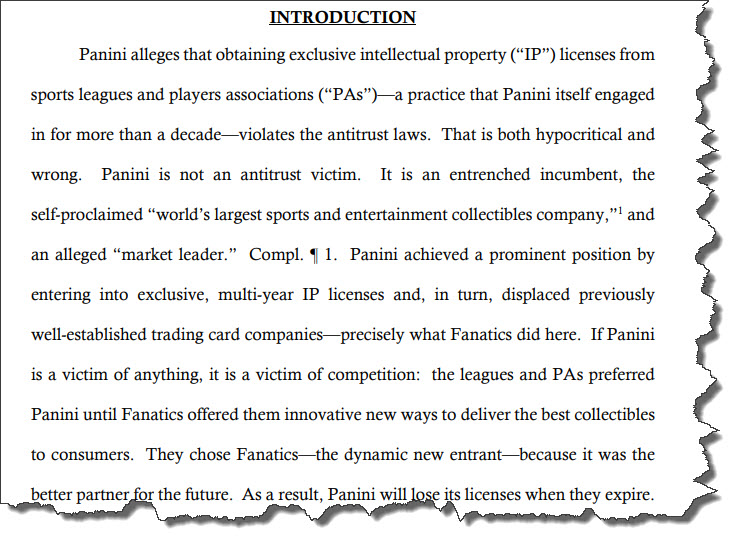In the dynamic universe of trading cards, tensions are escalating between industry champions, Fanatics and Panini. With Fanatics making inroads into the NBA and NFL card domains, Panini has responded with an antitrust legal challenge. At the heart of this dispute? Fanatics’ ambitious ventures into spheres where Panini once held sway.
The drama unfolds in the U.S. District Court in Tampa, Florida. Fanatics counters staunchly, suggesting that Panini’s grievances ring hollow, particularly when considering Panini’s history of securing exclusive sports agreements.
A detailed 35-page report by Fanatics highlights Panini’s past strategy—establishing exclusive ties with numerous sports groups and athletes. Interestingly, Fanatics points out, this is akin to the approach Panini is now criticizing. If Panini feels edged out, Fanatics believes, it’s more due to the industry’s shifting dynamics than Fanatics’ strategic moves.
Panini’s primary apprehension revolves around Fanatics’ aggressive expansion into NBA and NFL card licenses. However, Fanatics counters, emphasizing that their exclusive 2021 contracts with icons like NBA, NFL, and MLB were acquired through legitimate competitive means.
Aiming to safeguard their credibility, Fanatics clarifies they neither deterred leagues from considering Panini’s offers nor used any covert strategies for their advantage.
Still, they challenge Panini to present irrefutable evidence to back its antitrust allegations.
The plot further thickens. Panini has opened another legal front in Texas, agitated by a massive shift of its key personnel to Fanatics. To compound Panini’s concerns, Fanatics invested in the same printing establishment previously aligned with Panini. Furthermore, Fanatics’ sole agreements with three emerging NFL stars meant their signature cards are noticeably missing from Panini’s newest NFL collection.
For Fanatics, these maneuvers simply align with evolving market trends. With their new licenses in hand, they envisioned a holistic upgrade of the collector experience, encompassing talent collaborations, enhanced printing facilities, and focused athlete endorsements.
In the eye of this storm, Fanatics remains unyielding. They categorically deny any breach of trust linked to the Panini employees who joined them. They assert that these individuals migrated to Fanatics seeking brighter prospects. Additionally, Fanatics considers its exclusive athlete contracts as strategic and entirely lawful, aimed at augmenting their market influence and optimizing service to their partners. They maintain that none of their actions are targeted at diminishing Panini’s industry foothold.

